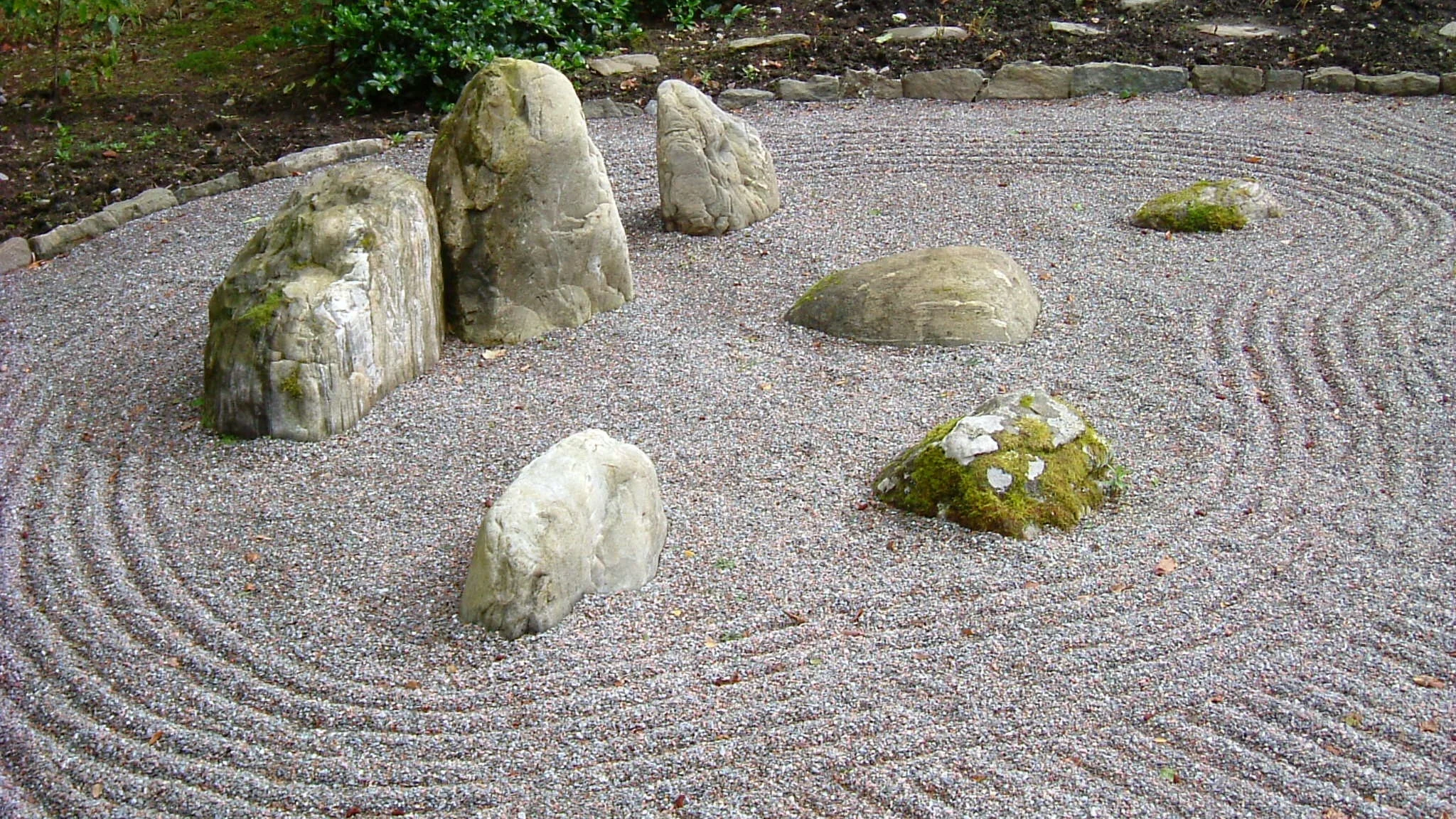The Japanese Garden
Constant flooding in winter (and an infestation of Japanese knotweed!) inspired the Japanese garden. Beds were raised, drains were relaid and it was gravelled. Stepping stones lead you across the gravel.
Traditionally Japanese gardens were intended to create feelings of peace and quiet contemplation. Old legends and reverence for natural elements have long been a factor in their design.
Design Elements
Five elements of traditional Japanese garden design were incorporated into this garden.
- To the West is the River of Life, with rocks representing mountains and gravel representing running water. A stone fish makes its way up the river to spawn, a symbol of an individual reaching his goal in life by his own efforts. A dry river bed and landscape is called KAREDAKI.
- To the right of the karedaki visitors can see a view through to the distant Applecross hills. "Borrowed landscape" in Japan is called SHAKKEI
- Next to the lantern, the arrangement of running water, basin and cup provided the visitor with the means of purification before the Tea Ceremony. The basin was always placed low down as everyone from most humble to Emperor abased themselves and became equal before the Tea Ceremony. This arrangement is called TSUKUBAI.
- The rocks in the raked gravel represent the ancient legend of the Islands of the Blest, islands off Korea, where it was believed the Immortals lived. A 9th century Emperor thought that if he made seven islands in the lake of his palace, he would learn the secret of immortality. In smaller gardens rocks have come to symbolise islands and raked gravel the sea. In temple gardens, raking the gravel was thought to induce an ideal state of "no mind". Dry gardens are called KARESANSUI.
- The final element of a Japanese garden is the plants. We have tried to use Japanese ones where possible. You will see "cloud-pruned" azaleas and miniature horizontal conifers in proportion with the neighbouring rocks; cherry and maple to emphasize the passing of the seasons; pine and bamboo to symbolize good fortune.












